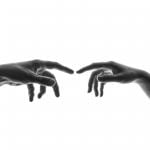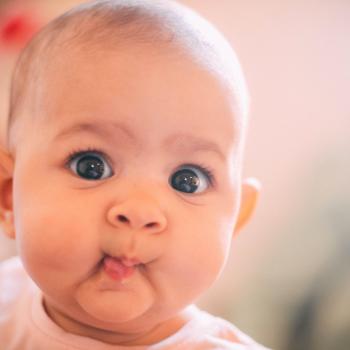In my twitter ramblings yesterday I landed on this interview in the Guardian. Another person I had never heard of, an author this time, has recently published a book—1000 pages which, some complain, is only made up of about 8 sentences. It is a stream of consciousness affair, and probably I won’t have time to read it. The bit of the interview that caught the attention of twitter is this unsurprising opinion:
What worries me is the big divide I’ve occasionally observed between mothers and daughters. I suspect patriarchy is behind this hostility. When women turn on each other, you have to look for the source of that, who benefits. It’s a great pity, because all this woman-on-woman anger could be better directed against our oppressors.
I was very close to my own mother, and feel the power and meaning of motherhood are widely overlooked – again, in service to patriarchy. But now that we’re in a climate emergency, the closer we can get to zero births, the better. I do admire women who decide to not have children for the environment. I think it’s touching and noble and generous. It’s also incredibly sensible. People don’t talk enough about how tiring, boring, enraging, time-consuming, expensive and thankless parenthood is. Why must we keep pretending it’s a joy? Sure, there are delightful elements: children are endearing and fascinating, and if you have some, you get to play with toys again and read children’s books and remember your childhood. But illness, worry, conflict, overcrowding, the relentless cooking, the driving, the loss of privacy, the repression of your own sexuality, the education dilemmas, the lack of employment prospects, and all the wretched insanity of adolescence – these are big deterrents.
You watch people get pregnant and know they’ll be emotionally and intellectually absent for 20 years. Thought, knowledge, adult conversation and vital political action are all put on hold while this needless perpetuation of the species is prioritised. Having babies is a strong impulse, a forgivable one, but it’s also just a habit, a tradition, like weddings or putting butter on popcorn.
In an hour or so I will pull myself together and take my youngest child back to the hospital for the removal of the two pins that have sufficiently held the growth plate in position for it to begin reattaching to her elbow. The pins were initially embedded under her skin to reduce infection, but of course they popped out—and got infected—and she’s done a jolly good job taking care of them over the last month. Because they’ve popped out, though, she won’t have to go “all the way under.” They will twilight her and extract the pins without needing to cut anything open again. Still, I’m nervous. I’m nervous all the time. In one six-week period I’ve gone from being a lackadaisical-I-don’t-care-life-is-dangerous kind of person to screaming when people brush against each other in the hallway.
Thinking over the long day before me, I find it interesting to consider the unquestioned assumptions articulated by Lucy Ellmann. First that women do not naturally experience conflict with each other. It is only men, all from conception members of that nebulous and ill-defined “patriarchy,” who introduce conflict into the lives of women. Second that zero births, and therefore the extinction of humanity, is an admirable, if impossible, ideal. Third that the trials and travails associated with having children do not outweigh the joy and surprise of orienting your intellectual and emotional landscape around another initially helpless person—one who will eventually grow up tethered to you, the giver of life, by a deep, almost unbreakable, emotional tie, one Ellmann confesses she enjoyed with her own mother. And fourth that the emotional and intellectual absence of mothers from the rushing course of humanity outside their windows or in the workplace is an irrecoverable loss in no way offset by the investment they might make in their children. As if focusing time, energy, intellect, and emotion on someone who will someday go out into that rushing course is not a practicable, useful, or meaningful way to engage with the human family.
In other words, there is that unhappy contradiction that plagues all discussions of this kind: humanity ought not go on anymore, and yet the feminine portion of humanity ought never to absent herself from its public sphere.
In some obvious sense Ms. Ellmann is absolutely right. Having children is boring, exhausting, exasperating, expensive, thankless, and so absorbing that the people who devote themselves to it do, in a profound and painful way, lose themselves, besides losing all kinds of other valuable experiences. I, for example, read one book in ten years, or that’s what it felt like. I lost so much sleep and so altered my natural rhythms that I still wake up in the middle of the night. My body has never gone back to the way it was before. The physical toll has been nearly as great at the emotional one. Though my children are slightly older, I am so often interrupted that I accomplish very little that feels meaningful to me. When I’m not naturally waking up from habit, I’m sitting up in the middle of the night terrified about college admission deadlines and whether or not some child remembered to turn in his assignment before midnight. I have utterly sublimated my own desires and habits of mind to the people around me. I have died over and over again, and my resurrection isn’t what you’d call enchanting. It is an ongoing death.
The question is, if I hadn’t chosen this kind of life, if I had had fewer children or pursued a career, would there not have been similar kinds of deaths? I would still have aged. I would have been driven forward by my anxiety for my sense of self the marketplace rather than my anxiety for my children. I would have had to endure the slings and arrows of colleagues and office politics. I might have had a greater sense of self-worth because maybe I would have been able to accomplish something I could look at, but maybe I wouldn’t have succeeded at anything and been poor and disappointed. There are no guarantees for anyone, no matter what kind of life you pick out for yourself.
The thing that’s so awful about the human project is how frail we all are—man and woman, mother and child, CEO and author. Even the strongest, richest, most powerful person in the world can get sick and die, or “kill himself in prison.” None of us will make it out unscathed, one way or another, though some of us have it much worse than others.
It is so curious to me that God should have taken on the indecency and horror of human frailty, should have used the mothering body of a woman to initiate his salvation of human-kind. There are so many things that could have gone wrong. It’s not like childbirth is without risk. And then, you know, a strong powerful king moving all of his forces into position to kill you is not usually the kind of thing that small, unknown people are able to escape without running into other kinds of troubles (like being murdered on the side of the road, or contracting some hideous disease.) When Jesus finally succumbs to death, tasting that hateful poison that finally does us all in, he experiences the one thing we all desperately avoid with all of our strength, might, wisdom, and understanding.
Or should avoid, I think. It is desperately sad that so many people are not trying to avoid it anymore, or are encouraging others not to bother. A great tragedy. All the more reason to shout from the rooftops the good news of a God who comes to us in our frailty, into our hospital rooms, into our beds that we can barely climb out of, into our broken and creaking hearts, who takes frailty and suffering onto himself and turns it into something so eternally good the likes of which we cannot possibly imagine.
If I were looking around for privilege, which I do not think is a very useful activity for the most part, I would easily find it in the mouth of this author, who, from the heights of worldly success and acclaim, would look down and imagine that the small, the frail, the divided and broken of the earth should absent themselves from a joy so profound–the joy of giving your life for the sake of another, a joy that God himself took up and used as the ground of our own salvation.


















